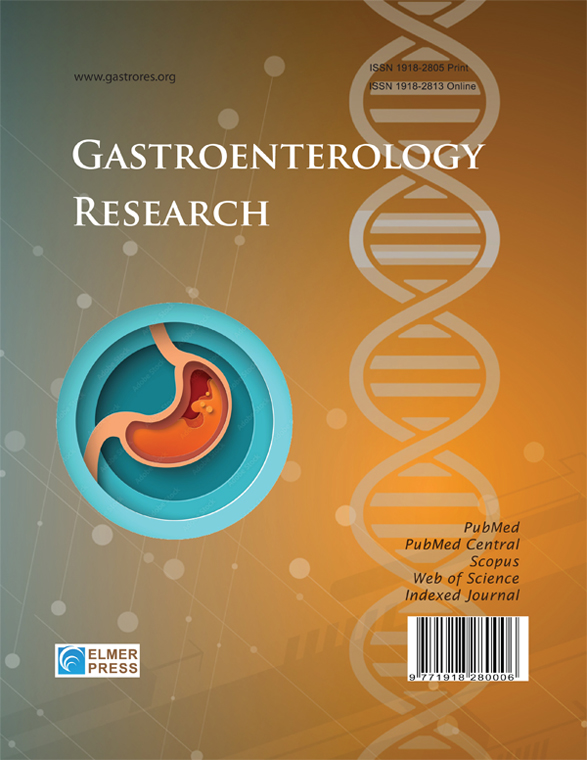Aspects on Self-Reported Symptoms in Irritable Bowel Syndrome: A Cross-Sectional Study
DOI:
https://doi.org/10.14740/gr2010Keywords:
Irritable bowel disease, Abdominal pain, Sleep quality, Functional bowel disordersAbstract
Background: Irritable bowel syndrome (IBS) is the major form of functional bowel disorders, where the diagnosis is based on set criteria and characterized by abdominal pain and changes in bowel habits. Epidemiological data, alongside self-reported outcomes, are of interest with regard to IBS, as these factors may need to be addressed to optimize underlying IBS. This study aims to examine the effect of IBS on certain aspects of life, including sleep quality alongside some epidemiological aspects with regards to the presence of IBS in the Jazan region of Saudi Arabia.
Methods: Individuals were invited to participate in the study by replying to a validated questionnaire, whereby respondents self-identified as having IBS or not. Non-parametric comparisons using Fisher’s exact test, between those with self-reported IBS versus those without IBS, were performed, with P < 0.05 considered significant.
Results: Of 728 respondents, 244 (33.5%) had self-reported IBS, and 484 (66.5%) did not. Respondents with IBS were more likely female (P < 0.001), younger age (P = 0.002), city-dwelling (P = 0.028), divorced (P = 0.028) and smokers (P = 0.003). Overall, education level did not differ amongst the groups (P = 0.093). A minority (13.5%) of those with self-reported IBS were diagnosed by a gastroenterology specialist. Abdominal pain, distension, constipation and diarrhea were all more prevalent (P < 0.001) in the IBS group compared to the non-IBS group. The IBS group had poorer sleep quality compared to the non-IBS group (P = 0.006), although no difference in medications for sleep was present between the two groups (P = 0.271).
Conclusions: Self-reported IBS was highly prevalent in our region, with risk factors for its presence being similar to those reported in previous studies. Sleep deprivation was highly prevalent in IBS patients, albeit not leading to increased prescription of relevant therapies for aid of sleep in these patients. However, marital separation and city-dwelling seemed to confer a higher self-reported IBS status. These issues should be investigated using more robust, Rome IV criteria-centered questionnaires in the future.

Published
Issue
Section
License
Copyright (c) 2025 The authors

This work is licensed under a Creative Commons Attribution-NonCommercial 4.0 International License.









